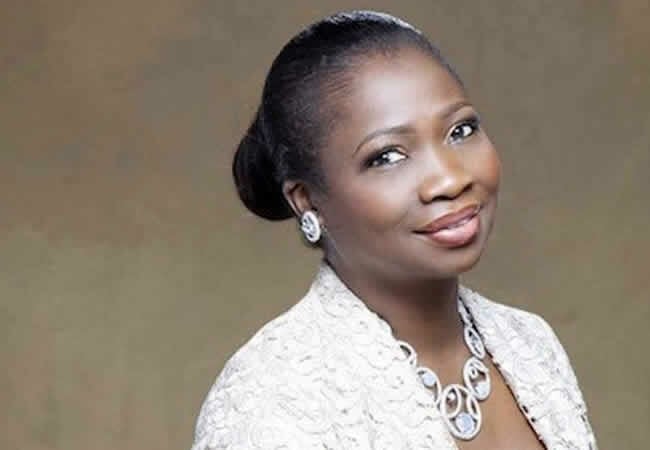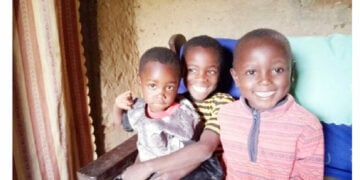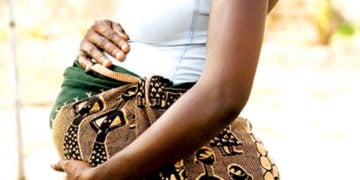In Nigeria’s ever-heated public square, unfounded narratives can take a life of their own. In recent times, there has been an orchestrated, persistent attempt to brand Hon. Abike Dabiri-Erewa, Chairman/CEO of the Nigerians in Diaspora Commission (NiDCOM), as “anti-Igbo.” This narrative, recycled with enthusiasm on social media and amplified by certain outlets, collapses under scrutiny. It relies neither on evidence nor facts, but on distortion, half-truths, and outright falsehoods.
The most persistent allegation is that Dabiri Erewa once described Igbos as monkeys. evidence of this has ever surfaced. All that exists is crude manipulation. In 2020, a user on Twitter, now X, with the handle ‘Voice of Igbos’ hurled the insult ‘mother ape’ at her. Another user, ‘Akerele,’ replied with a sarcastic jab about ‘gorillas’ and ‘monkeys’, in context of the original tweet. Dabiri-Erewa, rather than dignify the insult with words, responded with laughing emojis. That brief interaction was later twisted by People’s Gazette into a headline claiming she had herself called Igbos “monkeys and gorillas.” Even high-profile individuals like Arise TV’s Rufai Oseni and Instagram influencer Tunde Ednut amplified the misrepresentation without interrogating its source. The leap is as illogical as it is malicious.
A Record of Inclusive Service
If we step away from Twitter storms and examine her public record, the accusation quickly unravels. Dabiri-Erewa has consistently acted in defense of Nigerians across ethnic lines without any bias. Consider a few examples:
Sudan Evacuation (2023): When civil war erupted, NiDCOM coordinated with relevant ministries to evacuate over 2,700 Nigerians, most of them students, from Sudan to safety. No region was excluded. The evacuation was one of the most extensive in Africa (Al Jazeera, May 2023).
Ghana Traders Crisis (2019): When Nigerian traders—many of them Igbos—were harassed and their shops shuttered in Ghana, she confronted Ghanaian authorities and mobilized support (BBC News, Dec. 2019).
Xenophobia in South Africa (2019): During violent attacks that targeted Nigerians, she championed evacuation and compensation for victims. CNN noted her Commission’s role in organizing returns and relief (CNN, Sept. 2019).
Ukraine War (2022): As war displaced thousands of students, she coordinated relief and safe passage. The Guardian reported NiDCOM’s intervention to ensure Nigerians were not stranded at Europe’s borders (Guardian Nigeria, Feb. 2022).
Libya (2018): Under her watch, NiDCOM and the Ministry of Foreign Affairs coordinated the evacuation of thousands of Nigerians trapped in detention centers, many victims of trafficking and abuse. These operations gave families long-awaited reunions and rescued citizens from degrading conditions.
Central African Republic (2023): She oversaw the rescue of 12 stranded Nigerian miners caught in conflict zones, ensuring their safe return home despite logistical and diplomatic hurdles.
Bosnia-Herzegovina (2019): When two Nigerian students from the Federal University of Technology, Owerri (FUTO) were detained in a migrant camp after being mistaken for illegal immigrants, NiDCOM worked with European authorities to secure their release and return, preventing a diplomatic incident.
Indonesia (2008–present): Dabiri-Erewa has been a consistent advocate for Nigerians facing capital punishment abroad. As part of a parliamentary delegation led by Foreign Minister Ojo Maduekwe, she visited Indonesia to plead for 21 Nigerians on death row—20 of whom were from a single state. Years later, as NiDCOM chair, she has continued appeals for clemency, underscoring that justice and mercy should not be tribal matters.
As the Ohanaeze Ndigbo Youth Council once noted after her intervention in Ghana: “We may disagree with government policies, but we cannot ignore the fact that Hon. Dabiri Erewa has stood up for Igbos time and time again.”
To frame such a record as “anti-Igbo” is to mock both fact and fairness. She has raised the profile of diaspora engagement to levels unseen. The challenging work to build Nigeria through the diaspora has no ethnic bias.
Testimonies from the Diaspora
Those who work closely in partnership with Dabiri-Erewa know her well. Professor Jude Osakwe, Continental Chairman of NIDO Africa, recently warned against tribal scapegoating, commending her responsiveness: “Anytime we rescue victims, she was always there to assist.”
Similarly, Chibuzo Ubochi, Chairman of NIDO Europe, described her as “Mama Diaspora”—a title earned, not gifted. As a proud Igbo leader, he affirmed that her commitment transcends ethnic or religious boundaries.
Beyond institutional testimony, countless Nigerians attest to her quiet philanthropy. In Imo State, for example, she personally sustained scholarships for triplets from secondary school through to postgraduate degrees. This has nothing to do with constituency politics or tribe; it was her humanity in action.
Public officials must be scrutinized. That is the duty of a free press and an enlightened citizenry. But scrutiny must be tethered to fact, not weaponized rumor. To reduce decades of service—to journalism, to parliament, to diaspora advocacy—into a caricature of ethnic bias is to insult both the subject and the public.
Facts are sacred; opinion is free. And the facts are clear: Hon. Abike Dabiri-Erewa has stood with Nigerians, irrespective of state or ethnic group, in moments of fear and vulnerability. From xenophobic violence in South Africa to the chaos of war in Ukraine, she has insisted that every Nigerian life matters equally.
The attempt to brand Abike Dabiri-Erewa as “anti-Igbo” is unfair and absurd. Her record of service speaks louder than slander, and history will remember her impact.
– Abdur-Rahman Balogun (mnipr) is the Director of Media, Public Relations, and Protocols Unit NiDCOM, Abuja





